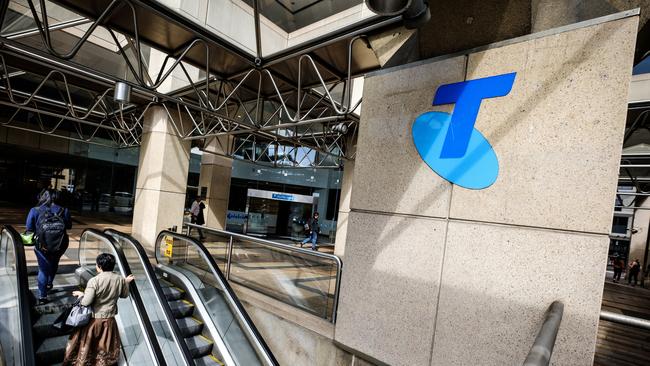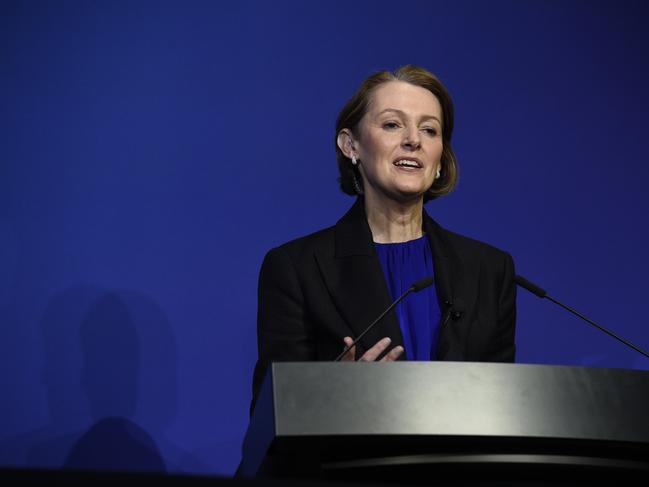Telstra-TPG make concessions as deal deadline looms
The telcos say they’ll allow the competition watchdog the ability to veto their network merger and have shortened the term to just eight years following concerns from Optus and others.

Telstra and TPG have made key concessions in their bid to enter into a network sharing agreement, reducing the two decade length of their proposal to eight, and giving the regulator the right to kill the deal after it begins if it is detrimental to competition.
TPG also said in a submission to the Australian Competition and Consumer Commission that it would hold onto existing leases and licences for 300 cellular sites across regional Australia “until the ACCC makes its re-authorisation decision in year eight”, following concerns that it would close much of the infrastructure soon after the deal is approved.
The changes would effectively give the ACCC a circuit breaker to ensure any of the longer-term concerns raised by Optus do not eventuate, TPG said.
The ACCC is currently mulling whether to approve the $1.8bn arrangement, which has sparked competition concerns from Optus and Nationals leader David Littleproud among others.
In its latest submission to the ACCC, TPG said that company and its customers stood to gain substantially and immediately from the deal which would enable the telco for the first time to offer a national footprint, and with a service standard competitive with Telstra and Optus’ mobile networks. It said any adverse effect on Optus is unlikely, speculative, or marginal.
“Essentially, Optus argues it can only continue to justify investment in its regional network if it does not face the threat of increased competition,” TPG said in its submission to the watchdog.
“This perverse – and irrational – argument cannot justify restricting TPG to less coverage and poorer network quality than Telstra and Optus.”

In its statement of preliminary views in September, the ACCC said it accepted Optus’ key argument that it would be disincentivised to invest in regional Australia, adding to the possibility the regulator will nix the deal when it makes its decision next month.
The ACCC has long wanted more – not fewer – mobile players, and unsuccessfully tried to block the $15bn merger between Vodafone and TPG in 2019.
The regional network sharing deal, first announced in February this year, would give TPG access to around 3700 towers across the regions and on urban fringes.
Andrew Sheridan, Optus’ vice president for regulatory and public affairs, told The Australian that the new concessions from Telstra and TPG did not go far enough, and would still leave regional Australia worse off. “Telstra and TPG’s concessions don’t address the anti-competitive nature of the proposed arrangement and are simply designed to ‘kick the can down the road,” Mr Sheridan said. “Either way, regional Australia will still be worse off.”
Former NSW premier Gladys Berejiklian, now an Optus executive, has called the network merger a “backwards step for millions of Australians”.
“We’re extremely concerned that that would be a backward step to an industry which needs more competition,” she said in a previous interview with The Australian. “It’s called a shared proposal, but in effect it’s a merger. When you strengthen the position of a dominant incumbent, and disincentivise organisations from making future capital investments, that’s not a good thing. And that has the adverse impact of providing less resilience in the network.”
Optus and TPG could team up for their own network sharing deal of the latter’s is not approved, the competition watchdog has said, and Optus last week said a tie-up with TPG was “at least a real commercial likelihood” if the TPG-Telstra deal is rejected.

“Based on Optus’ evidence … the ACCC should conclude that there is at least a real commercial likelihood of Optus and TPG reaching agreement on such an arrangement in the counterfactual,” Optus said last week.
Michelle Lim, the chair of industry association Commpete, said if approved, the TPG-Telstra deal would have detrimental long-term implications for competition.
“Handing an essential service to an already dominant single private enterprise is not a step in the right direction to serve the digital future of this nation,” she said.
“The proposal simply entrenches Telstra’s dominance and power, and further limits incentives for competition.”
The ACCC has flagged that the new submissions mean a decision will likely not be possible by the original December 2 deadline.
“We note that the applicants ‘do not anticipate that (the proffer of the undertakings) will require any change to the time frame for authorisation’. The ACCC considers this proposition to be unrealistic. The undertakings have been proffered 30 days before the ACCC is to make its determination,” the ACCC’s general manager of merger investigations Daniel McCracken-Hewson wrote to TPG and Telstra.
“We request that the applicants provide the ACCC an extension of time to Thursday December 22,” he wrote.







To join the conversation, please log in. Don't have an account? Register
Join the conversation, you are commenting as Logout